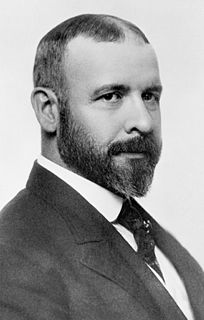A Quote by Henri Frederic Amiel
To understand is to possess the thing understood, first by sympathy and then by intelligence.
Quote Topics
Related Quotes
Now, you see, if you understand what I'm saying, with your intelligence, and then take the next step and say "But I understood it now, but I didn't feel it." Then, next I raise the question: Why do you want to feel it? You say: "I want something more", because that's again that spiritual greed. And you could only say that because you didn't understand it.
Photographs are a way of imprisoning reality, understood as recalcitrant, inaccessible; of making it stand still. One can't possess reality, one can possess (and be possessed by) images — as, according to Proust, most ambitious of voluntary prisoners, one can't possess the present but one can possessthe past.
When children feel understood, their loneliness and hurt diminish. When children are understood, their love for their parent is deepened. A parent's sympathy serves as emotional first aid for bruised feelings. When we genuinely acknowledge a child's plight and voice her disappointment, she often gathers the strength to face reality.
I'm sorry,' said the shopkeeper. 'I can't understand your ridiculous accent.' 'My accent?' 'It is quite silly.' 'So you can't understand me?' 'Not a word.' 'Then how did you understand that?' 'I didn't.' ''You didn't understand what I just said?' 'That's right.' 'You understood that, though.' 'Not at all.' The American glowered.






































